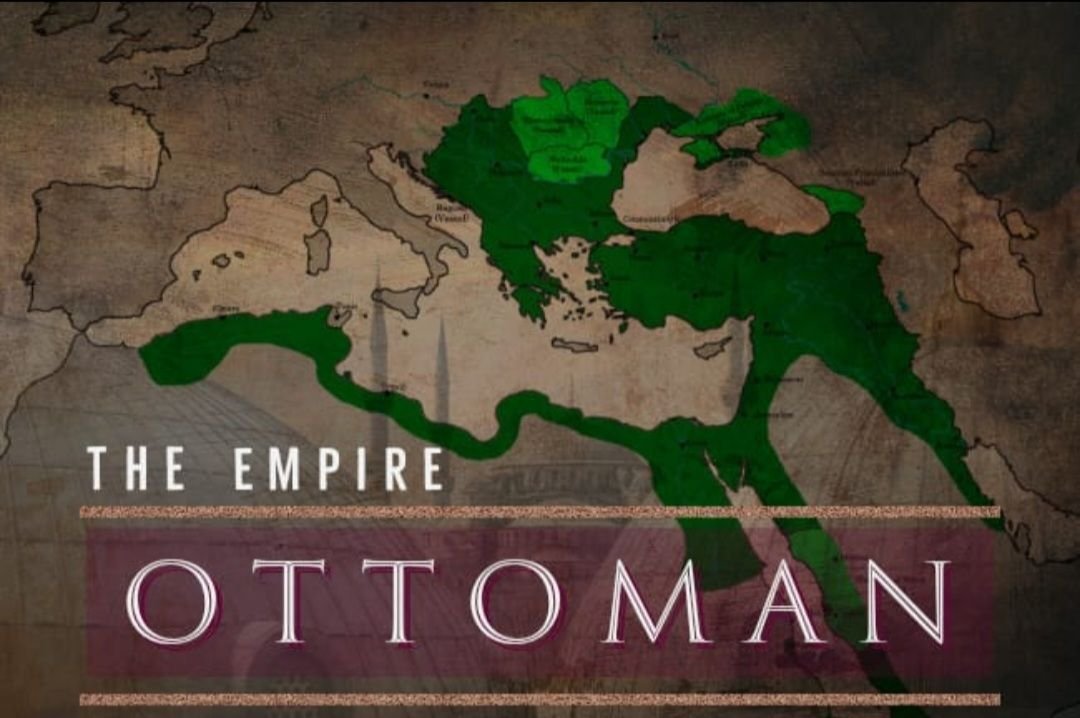[40] Ascent and Decline of the Ottoman Empire- [Otto von Bismarck and Others Plotted]
In The Name of Allah, The Most Merciful, The Bestower of Mercy.
Sultan Abdul Hamid II
The Russian envoy presented preconditions and requested their immediate signing; otherwise, the Russian armies would advance and occupy Istanbul, leaving the Ottomans with no choice but to sign.
The treaty stipulated:
1 – The establishment of borders for Montenegro to resolve the dispute, granting this principality independence.
2 – The Principality of Serbia gains independence and acquires additional territories.
3 – Bulgaria achieves administrative self-governance, paying a specified amount to the Ottoman Empire, with state officials and soldiers being exclusively Christians appointed by the Ottomans and Russians. The prince is elected by the inhabitants, and the Ottomans withdraw their troops completely from Bulgaria. The borders are to be defined.
4 – Romania is granted full independence.
5 – The Sublime Porte commits to protecting Armenians and Christians from Kurds and Circassians.
6 – The Sublime Porte will reform the conditions for Christians on the island of Crete.
7- The Ottoman state is to pay a war indemnity of 250 million gold lira, and Russia may receive territories in exchange for this amount.
8- The straits (Bosphorus and Dardanelles) will remain open to Russian ships in both peace and war.
9 – Muslims in Bulgaria are permitted to migrate to any part of the state they desire.
Thus, the fragmentation of state properties in Europe took place, even though Bulgaria’s expansion caused dissatisfaction among other Balkan countries like Austria, Greece, and Serbia. Moreover, Britain was unhappy with the growing Russian influence in the Balkans and was ready to challenge Russia. In June 1878, Britain obtained the right from the Ottoman Empire to occupy and manage the island of Cyprus, on the condition that it would stay under Ottoman control. In return, Britain agreed to protect the state’s properties in Asia from any further Russian threats, as long as the Sultan from Aleppo promised to carry out necessary reforms in his Asian regions in cooperation with Britain. Additionally, Britain promised to leave Cyprus if the Russians withdrew from the territories they held in Asia.
Sultan Abdul Hamid was initially not pleased with entering this war, which is why Britain supported him. This led to another conference (the Berlin Conference) to ease the situation. He did not approve the treaty and engaged in intense political and diplomatic efforts. The effects of the San Stefano Treaty, along with the fear of Russia competing with Britain, helped divert Russia’s attention from the war. He managed to secure gains for the state and reduced the losses outlined in the first treaty. The events surrounding both treaties showcased Sultan Abdul Hamid’s political genius, which was evident in creating a rift between Russia and Germany as well.
The German Emperor “Wilhelm II” mentioned in his memoirs:
I had a conversation with one of the senior commanders who served in the imperial court during the reign of “Alexander II”, the Tsar of Russia, about the relations between the Russian and German courts, as well as between the two armies and countries. I told this commander: I see a definite shift in these relations. He replied: The blame lies with the Berlin Conference! That was a major mistake made by (Bismarck) as it destroyed the old friendship we had and eroded Germany’s trust with the Russian court and government. It made the army feel it had suffered a great injustice after the bloody war it fought in 1877.
The Berlin Conference (1305 AH /1887):
The major powers (at the time) attended the conference (England, France, Germany, and Austria). Discussions were held regarding the amendment of the San Stefano Treaty between Russia and the Ottoman Empire, as the involved countries opposed this treaty because it did not align with their strategic interests. The conference participants agreed to modify the San Stefano Treaty. The Berlin Treaty was then established, which included the following terms:
1 – The independence of Bulgaria, with adjustments to its borders, and the establishment of a province named Eastern Rumelia in the southern Balkans, which would be under the political and military sovereignty of the Ottoman Empire. A Christian governor would be appointed for five years by agreement of the states, and Russia would maintain a military presence in Bulgaria and Eastern Rumelia, limited to fifty thousand soldiers.
2 – Greece’s borders were slightly extended to the north, noting that Greece did not participate in the fighting, and the San Stefano Treaty did not include any of its territory.
3 – The annexation of Bosnia and Herzegovina by Austria.
4 – The annexation of Bessarabia by Russia after it was taken from Romania, along with the inclusion of the Dobruja region and some islands to Romania, granting it full independence.
5- The independence of Serbia and Montenegro.
6- The annexation of the cities of Kars, Ardahan, and Batumi to Russia.
7- The conference decided to maintain the war indemnity established by the Treaty of San Stefano on the Ottoman Empire, amounting to 250 million gold lira.
8- The Sublime Porte pledged to accept all its subjects’ testimonies in court without discrimination based on religion.
9- Approval to improve the conditions of Christians on the island of Crete.
The German Chancellor Bismarck was the one who called for the conference, fearing that Britain’s opposition to Russia could lead to a general European war and threaten the German Empire, which he had worked hard to establish. Therefore, he invited the great powers (at the time) to the conference in Berlin to review the Treaty of San Stefano and settle the outcomes of the Russo-Turkish War.
Some historians have noted that behind the scenes of the Berlin Conference, Bismarck proposed dividing the Ottoman Empire for the sake of European peace. He offered Britain Egypt, France Tunisia, and the Levant, Austria Bosnia and Herzegovina, and Russia the Bosporus and Dardanelles, among other possessions of the Sultan. However, these proposals were not included in the conference’s resolutions. [Footnote a]
The Berlin Conference marked a significant decline for the Ottoman Empire, which was forced to give up large areas of its territory. It also highlights Britain’s and France’s efforts to maintain control over Ottoman possessions. Furthermore, both Britain and France revealed their colonial intentions; France occupied Tunisia in 1881, while Britain took control of Cyprus. Additionally, Britain invaded Egypt in 1882, claiming that its occupation was temporary. As a result of the war between the Ottoman Empire and Russia, the Sultan had to adopt the title of Caliph to address the new challenges. He also worked on establishing the Islamic University to unite all Muslims both domestically and abroad. There is no doubt that the Islamic University movement was well-received by Muslims, who believed that the weakness of the Ottoman Empire stemmed from a decline in religious sentiment among Muslims. This perception encouraged enemies of Islam to invade Islamic lands, plundering one country after another. [An Excerpt from ‘Ad-Dawlah Al-Uthmaaniyyah Awaamil An-Nuhood Wa Asbaab As-Suqoot 6/456-460]
Footnote: Another Berlin Conference took place from 1884 to 1885, during which several of the same colonialists convened to partition Africa using arbitrary borders. Thus, while the author does not provide evidence that Bismarck privately advocated for the division of the Ottoman Empire to serve European interests, it is not unreasonable to assume that he may have made such proposals. This is because of the fact that some of these same colonialists, after invading, brutalising, and plundering Africa, divided the continent as if it were a mere commodity- systematically fragmented Africa to facilitate an agreement on resource sharing, perpetuating exploitation, injustice, and brutality. Therefore, concerning the alleged suggestions to fragment the Ottoman Empire, readers are encouraged to conduct further research to verify the facts.
To the “duly inquisitive” who inquired, “What prompted you to share history of the Ottomans?”
To the “duly inquisitive” who inquired, “What prompted you to share history of the Ottomans?”








